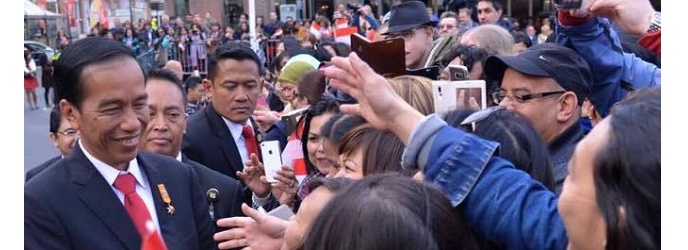Corruption in Indonesia: DPR the Most Corrupt Government Institution
The latest survey of Berlin-based Transparency International confirms that Indonesia's House of Representatives (DPR) is perceived - among Indonesians - as the most corrupt institution in the country. This outcome is no surprise because the DPR, the elected national legislative assembly that draws up and passes laws and budgets as well as monitors the performance of the government, has for long been perceived by the Indonesian people as the most corrupt institution within the country.
Transparency International's Global Corruption Barometer, which is based on polls, assesses "the degree to which corruption is perceived to exist among public officials and politicians" in a specific country. The method that is used cannot guarantee 100 percent accuracy as the nature of corruption (namely being something that is often hidden from the public eye) implies that people lack information. On the other hand, people's perceptions could be more negative compared to true conditions. Still, considering people usually have a good sense of what is "going on" in the country, the findings of Transparency International should be meaningful.
Transparency International's latest survey (2017 Global Corruption Barometer), which involved more than 1,000 respondents in 31 provinces across the Archipelago, shows that 54 percent of respondents regard Indonesian lawmakers as the main actors in corruption cases, followed by bureaucrats (50 percent), regional councilors (47 percent) and tax officials (45 percent).
Wawan Suyatmiko, Research Manager of Transparency International Indonesia, says the findings of the survey show that the Indonesian people are well aware of the many arrests and court cases over the past years that involve Indonesian lawmakers and regional councilors. According to data from the Corruption Eradication Commission (KPK), the nation's anti-corruption watchdog a total of 122 lawmakers and councilors were arrested for graft, while 14 court judges were imprisoned for corruption over the past two years.

Good news is that Indonesians are now more satisfied with anti-corruption efforts that are conducted by authorities. According to the survey, 65 percent of respondents indicated that they are satisfied with corruption eradication programs, a significant rise from 18 percent in the preceding survey. Such satisfaction could be caused by plenty of media attention for arrests of high profile graft suspects over the past couple of years. Another reason could be that several central and regional leaders are perceived as "clean" and eager to combat corruption. Examples are Indonesian President Joko Widodo and Jakarta Governor Basuki Tjahaja Purnama (better known as Ahok).
However, despite this positive trend, 65 percent of respondents said they see corruption growing in Indonesia, while 32 percent admitted they have ever bribed a public official (including police and civil registry officers). Meanwhile, the number of respondents admitting to ever having bribed court officials fell considerably from 66 percent to 6 percent.
Read more: Analysis of Corruption in Indonesia
Indonesia has never ranked high in the Corruption Perceptions Index. In the latest index it ranked 90th. However, over the past decade the country does show a marked and solid improvement in terms of scores (a score of 10 means free from corruption, while a score of 1 indicates the system is fully corrupt).
Corruption Perceptions Index 2016:
| 1. | Denmark | 9.0 |
| 1. | New Zealand | 9.0 |
| 3. | Finland | 8.9 |
| 4. | Sweden |
8.8 |
| 5. | Switzerland | 8.6 |
| 90. | Indonesia | 3.7 |
Source: Transparency International
Corruption Perceptions Index:
| 2005 | 2006 | 2007 | 2008 | 2009 | 2010 | 2011 | 2012 | 2013 | 2014 | 2015 | |
| Indonesia | 2.2 | 2.4 | 2.3 | 2.6 | 2.8 | 2.8 | 3.0 | 3.2 | 3.2 | 3.4 | 3.6 |
Source: Transparency International
Bahas
Silakan login atau berlangganan untuk mengomentari kolom ini
